Rain preview: Japan Studio's other Ico heir
The Last Guardian may still be AWOL, but there's another game from Sony's Japan Studio that takes on Team Ico's spirit.
Of all Sony's philanthropic ideals - the all-inclusive approach to indie developers, the generosity of PlayStation Plus and the free packet of French fancies that's likely to be bundled with every PS4 console - there's one that remains unsung. PlayStation C.A.M.P. - that's Creator Audition Mash-up Project, by the way - is a little department within Japan Studio that's responsible for some of Sony's oddest games.
The premise is simple, if a little hard to believe. PlayStation C.A.M.P. is an open-armed initiative that lets anyone with an idea pitch a game to Sony, and if they're successful, to see it through to completion with the assistance of established development talent. It has brought us Trash Panic (something of an unsung wonder itself), sparked off the project that became Echochrome, and recently had its highest profile hit with Tokyo Jungle.
Rain, the latest product, is a little more delicate than last year's rightly adored shagging and scrapping simulator. Perhaps that's down to the make-up of the minds behind the PSN game; Acquire, the developer best known for the soft-spoken stealth series Tenchu, is handling the main duties, but one of the creators was originally a florist.
"All the ideas come from the PlayStation C.A.M.P.," quietly explains producer Noriko Umamura. "We have many talented people in PlayStation C.A.M.P., and they're not necessarily from a game background. When I found that out one of the game designers was a florist I was quite surprised. He pitched to us, and gave us ideas - I found that fascinating."
The delicacy and poise you'd expect from a florist's touch shines through in Rain from its watercolour intro onwards. Thin blobs of colour wash across the screen as the tale is set up: you're a boy turned invisible, taking to dark, damp streets in pursuit of a mysterious girl being chased by a strange, wispy beast.
As you begin to explore Rain's city, which is always cast under nightfall and where the rain never ceases, that somber gracefulness is underlined by the cut-glass melancholy of Debussy's Claire de Lune, with gentle percussion provided by the pitter-patter of the drizzle. Rain's urban backdrop, knitted together from various European locations, is a strange, lonely place. It's a city in the dead of night as seen through a child's eyes, the streets quiet yet magical.
The mechanics are light, but thoughtfully used. There's exploration punctuated by encounters with odd, skeletal beasts of various flavours. You're only visible in the rain, the cascading water casting a ghostly silhouette, and by seeking shelter in the dry you disappear, out of sight and out of harm's way.
Rain's damp streets provide a fascinating inverse when you head out of the perpetual showers. Vanishing from the screen, you're only visible in the small wet footsteps you leave in your wake, or the scattering of the urban flotsam you push your way through. Walk down an alleyway and discarded posters will rustle, while stacked up milk bottles will tinkle out of the way.
Over the course of Rain's gentle adventure, its mechanics are teased out and expanded upon: there are muddy pathways that dirty your footprints, ensuring you're still spotted by patrolling beasts even when in shelter and requiring you to wash away the filth.
Different enemy types present different challenges. Small, hound-like creatures simply scout the environment, and larger, more humanoid ones track you down, crashing through scenery in their pursuit. Later on, there are even friendly beasts, huge, wandering giraffe-like creatures that provide portable shelter.
And once you've tracked down the girl you're chasing, the two of you work in unison. You can move blocks to help her flee enemies, and further down the line, where possible, she'll come to your assistance too. The relationship between the two is emotive but mute - the only explicit narration in Rain comes from floating text that, like Bastion's storyteller, occasionally comments on your actions.
It's a tenderness, of course, that's evocative of Ico, and in its simplicity and melancholy the comparisons don't end there. The team that's working on Ico's successor The Last Guardian within Sony's Japan Studio may well be AWOL, but that doesn't mean it's an outfit that's incapable of producing similarly affecting games - even if they do sometimes come from some unlikely sources.
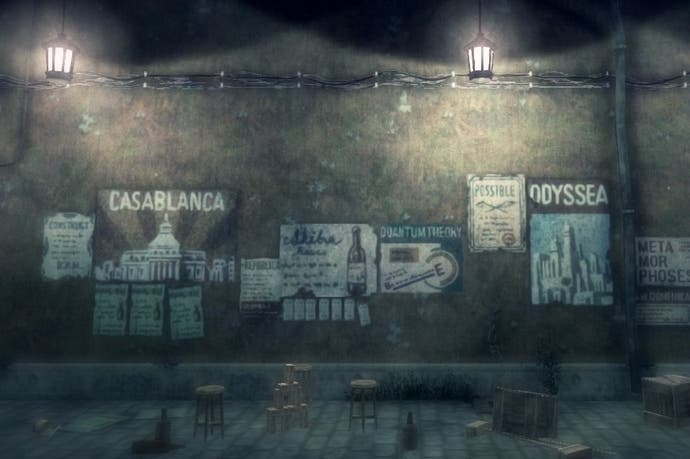

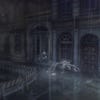



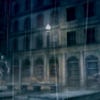
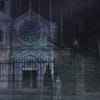
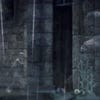
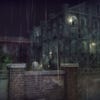
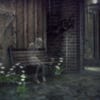

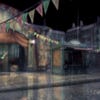
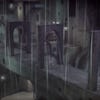
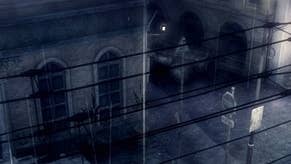

.png?width=291&height=164&fit=crop&quality=80&format=jpg&auto=webp)




.jpg?width=291&height=164&fit=crop&quality=80&format=jpg&auto=webp)
